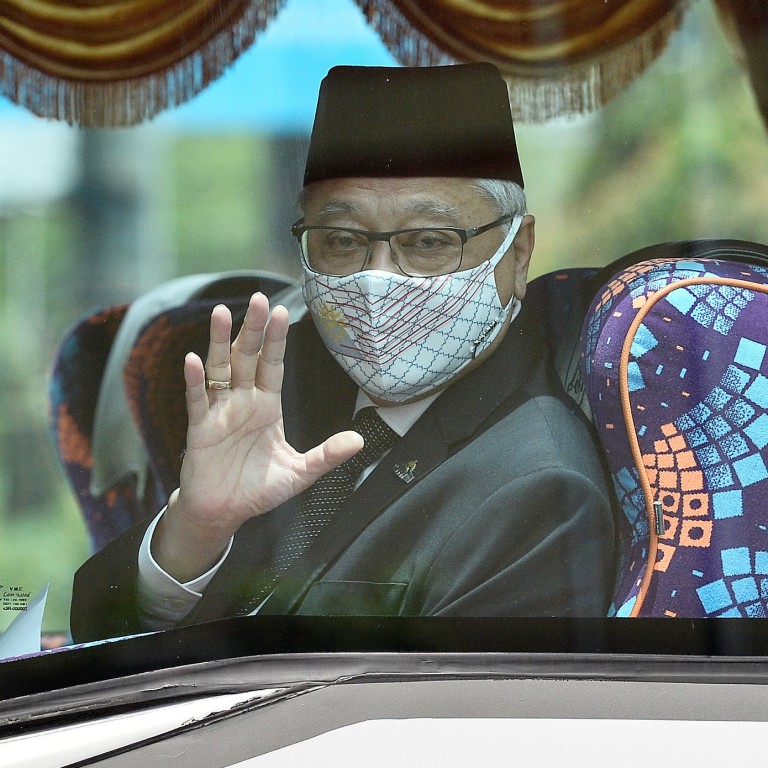
Malaysian politics: as Najib and fellow graft suspects gain strength, what’s next for PM Ismail Sabri?
- The Barisan Nasional coalition is on a high after a sweeping victory in Johor, prompting calls from its Umno stalwarts for an early general election
- Observers suspect former PM Najib is plotting a return to power to exonerate himself from the 1MDB scandal. If so, Ismail Sabri’s future may rest with the opposition
On Saturday, the coalition staged a crushing victory in elections in the country’s second-most-populous state, Johor. That result followed three other statewide polls held since 2020 in which the coalition and its allies had comfortably beaten an increasingly fractured opposition.
In theory, this should reap dividends for Ismail Sabri, who took office last August following the collapse of two short-lived administrations starting from 2020.
But the reality, political observers say, is that the 62-year-old prime minister now faces more pressure from his own party – including ostensible allies such as Najib – to call a snap general election within months.
The Barisan Nasional coalition is dominated by the powerful United Malays National Organisation (Umno), in which Najib has been strengthening his clout even amid his various legal troubles.
When [the prime minister] is being openly treated with disrespect, these are big red flags
Observers say Najib and Umno’s current chief Ahmad Zahid Hamidi are hoping for an early general election well before the various corruption-related cases they are facing are dispensed with, possibly with convictions and lengthy jail sentences.
A return to power, and possibly direct control of the prime minister’s office, could give the two men the means to be exonerated, possibly through a self-pardon.
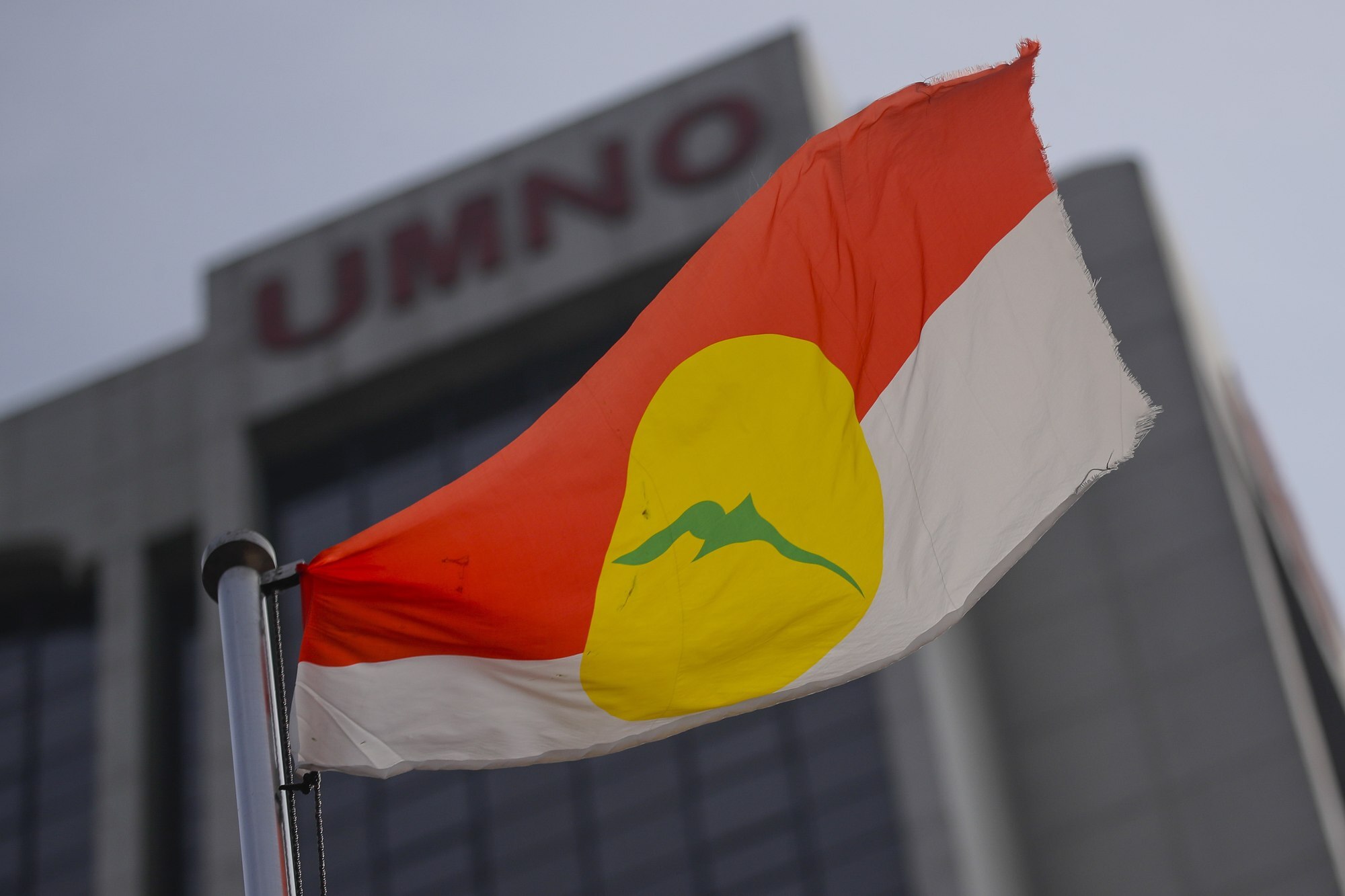
The Court Cluster
Both politicians, Umno stalwarts, are part of a wider group of Umno politicians facing criminal cases and referred to by the local media as the “Kluster Mahkamah” – or Court Cluster.
“The Court Cluster hopes that early elections give it greater control over the federal government – by bolstering Umno’s seat count and the faction’s influence within the party – potentially resulting in corruption charges disappearing,” said Peter Mumford, the Southeast and South Asia practice head of the Eurasia Group consultancy.
“Najib has already been convicted and cannot run in the next election [though he contests this], but likely believes his interests would be better served with his allies in charge,” Mumford wrote in a note to clients after the Johor polls.
Both Najib and Ahmad Zahid strenuously deny that their political machinations have anything to do with their efforts to exonerate themselves. The country’s judiciary has also said it rules on all cases impartially, and would not be subject to any form of political interference.
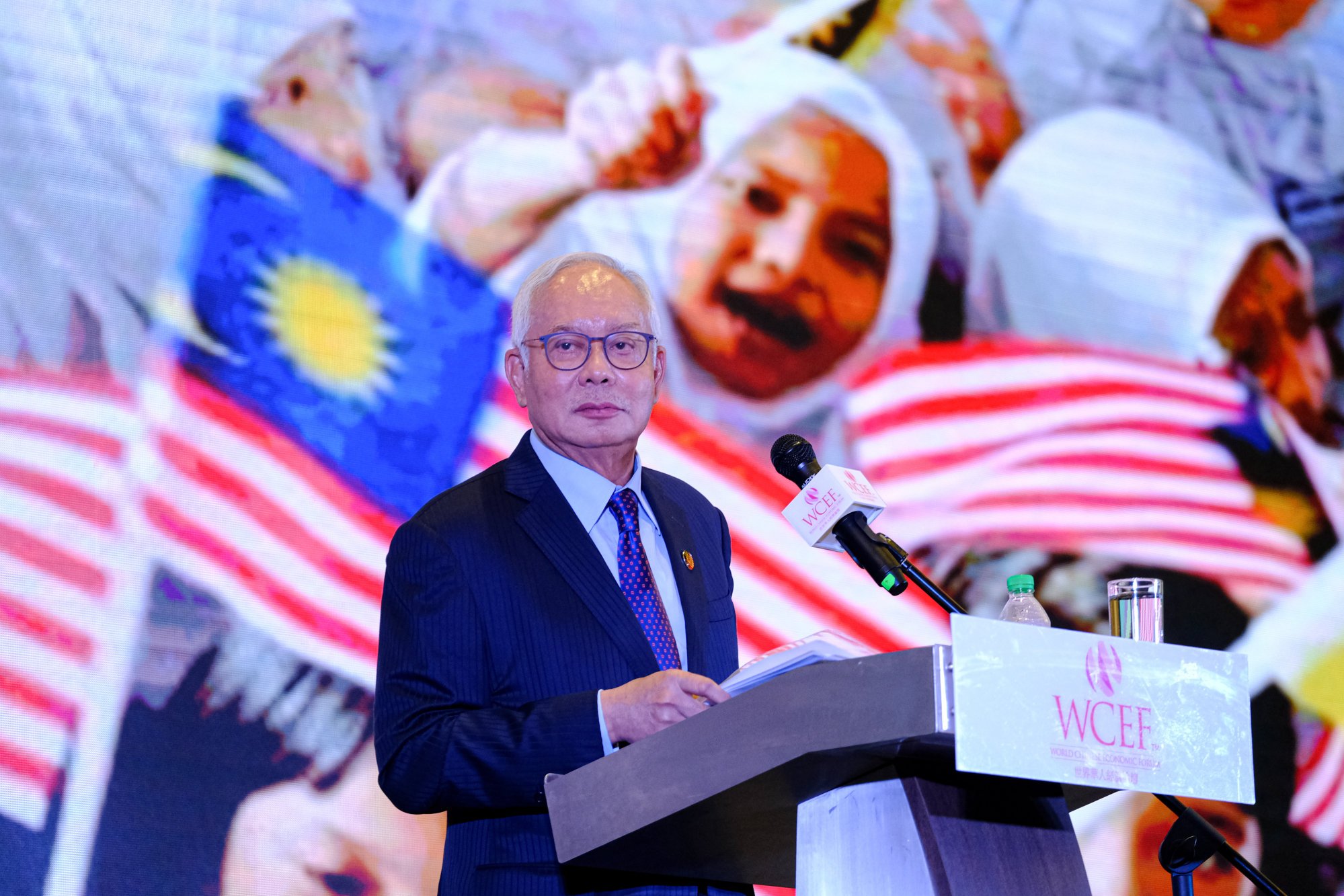
Nonetheless, long-time Malaysia watcher James Chin said Ismail Sabri, more now than ever, was “in really big trouble” in light of the pressure from the two Umno heavyweights.
“I cannot see a scenario where Najib and Ahmad Zahid would allow Ismail Sabri to hang on to the prime-ministership,” said Chin, a professor at Australia’s Murdoch University.
Following the Johor vote, analysts have been looking for signs of frayed ties between the Court Cluster and Ismail Sabri, who commands his own faction in Umno that has been dubbed the “Kluster Kabinet”, or Cabinet Cluster. This group is seen as preferring Ismail Sabri to stay on as prime minister until the end of the electoral term next year.
Of particular interest was the reception Ismail Sabri received in the Barisan Nasional’s election command centre on election night. As he entered the venue, the prime minister was greeted with chants of “dissolve parliament!”.
Is a new opposition front emerging in Malaysian politics?
Another scene from that night that has been scrutinised was when Ahmad Zahid appeared to nudge Ismail Sabri aside as the leaders stood on a podium in front of the media, and guided Najib to take centre stage instead.
In a further slight to Ismail Sabri, Ahmad Zahid in his speech that night said Najib was a key factor for the coalition’s decisive victory in Johor. On social media, Malaysians took note of these signs.
“When [the prime minister] is being openly treated with disrespect by the Court Cluster, these are big red flags,” said Twitter user Chrisanne Chin.
The post went viral and commenters suggested the prime minister was “weak”, “powerless” and poised to become the shortest-serving Malaysian prime minister in the face of the Court Cluster’s machinations.
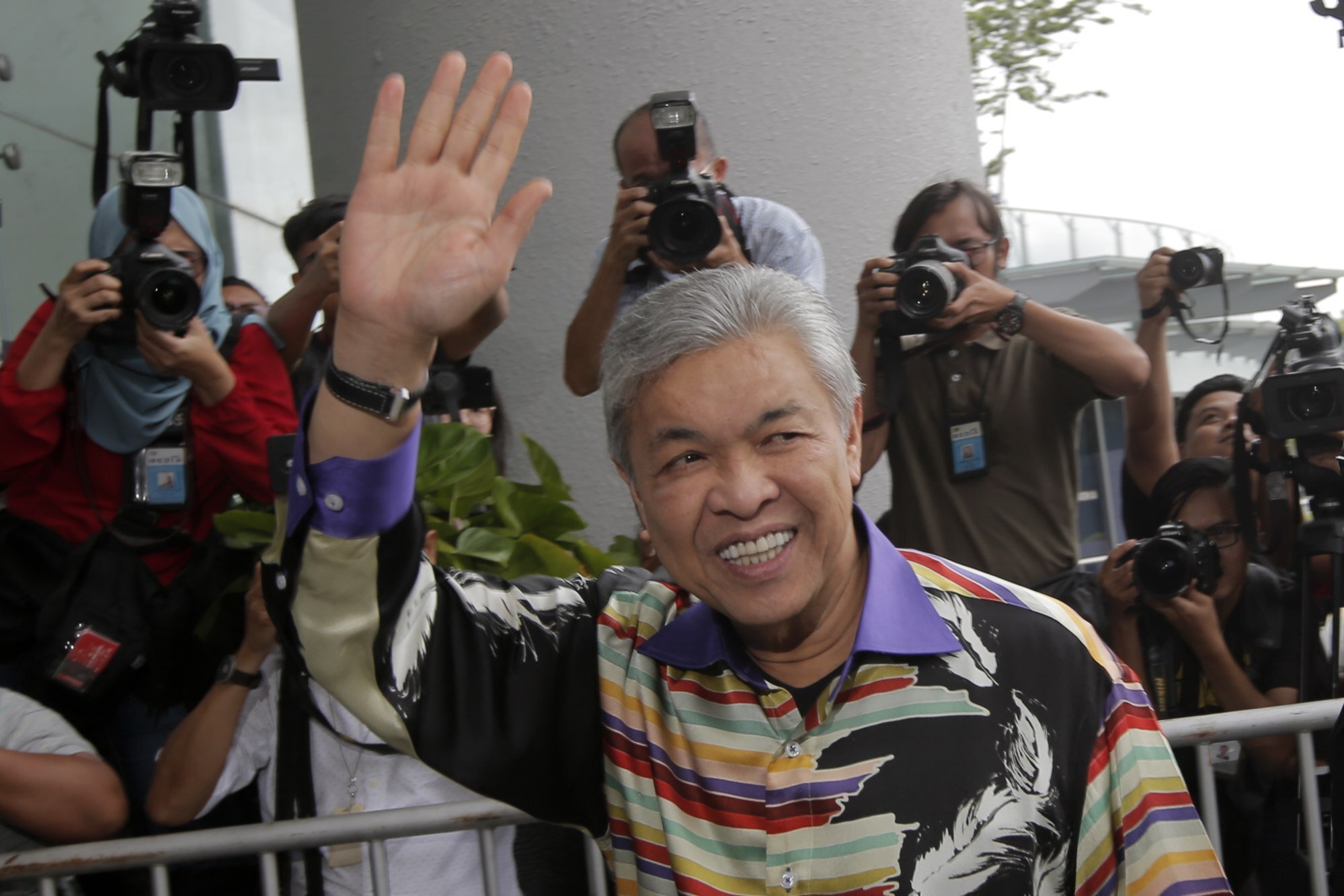
The Pakatan Harapan factor
The bloc last September signed a memorandum of understanding with Ismail Sabri’s administration that guarantees him backing in a vote of no confidence – subject to certain conditions – in return for a pledge that polls will be called after July.
Amid the Court Cluster’s pressure, Ismail Sabri could ask Pakatan Harapan to lend its support to him beyond July, analysts suggested. That means his government would still command majority legislative support even if Najib and his allies decide to withdraw their backing.
Malaysia’s Najib on the defensive over 1MDB scandal after US trial testimony
“With growing pressure for him to call for a snap election, it is inevitable for the prime minister to prolong the agreement with Pakatan Harapan to ensure that he can remain as prime minister and push the election to next year,” said political analyst Awang Azman Awang Pawi.
Mumford of Eurasia Group offered a similar view.
“Ismail has hinted at the possibility and Pakatan Harapan would likely agree as the opposition coalition is in a mess and would prefer to have more time,” Mumford said.
“Residual concerns about the pandemic or current geopolitical developments could provide an excuse to avoid elections, even if a bit of a stretch,” the Singapore-based analyst said.
The downside risk to any such cooperation would be giving the public a ringside seat to the internal power tussle within Umno and Barisan Nasional, analysts said, noting that the electorate was showing increasing signs of being jaded with the country’s constant politicking.
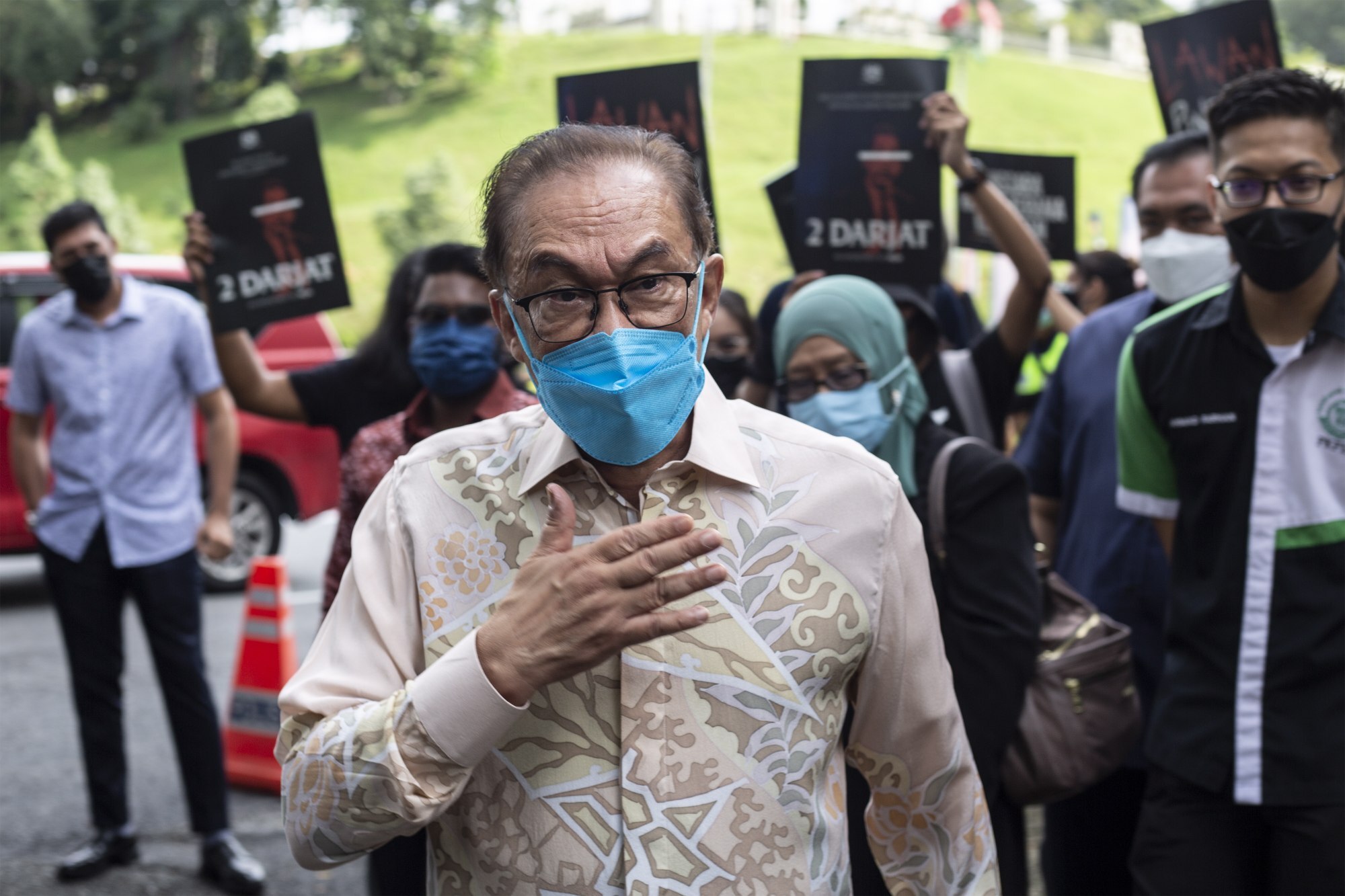
This was evident in the Johor poll where only 55 per cent of the electorate turned out to vote, a figure that was lower than the 65 per cent of eligible voters who cast ballots in last November’s Melaka election.
In comparison, the overall turnout in the 2018 general election stood at 82 per cent.
Political analyst Iskandar Fareez, who is also a member of the opposition bloc, said the prime minister for now appeared to be in “survival mode”.
“He will try to use whatever arsenal at his disposal to prolong his prime-ministership. What else does he have up his sleeves? Only time will tell,” Iskandar said.
Oh Ei Sun, an aide to Najib during his 2009-2018 stint as prime minister, also predicted that Ismail Sabri would find a way to forestall the efforts of the Najib-Ahmad Zahid Court Cluster.
“They will force him, but he will resist,” Oh said.
For his part, Ismail Sabri has thus far indicated that elections are far from his mind.
“We cannot hold GE15 [General Election 15] just because one small group is shouting for elections to be held,” he said on Sunday. “Discussions on elections is a major thing and it has to be seriously discussed in the party.”

